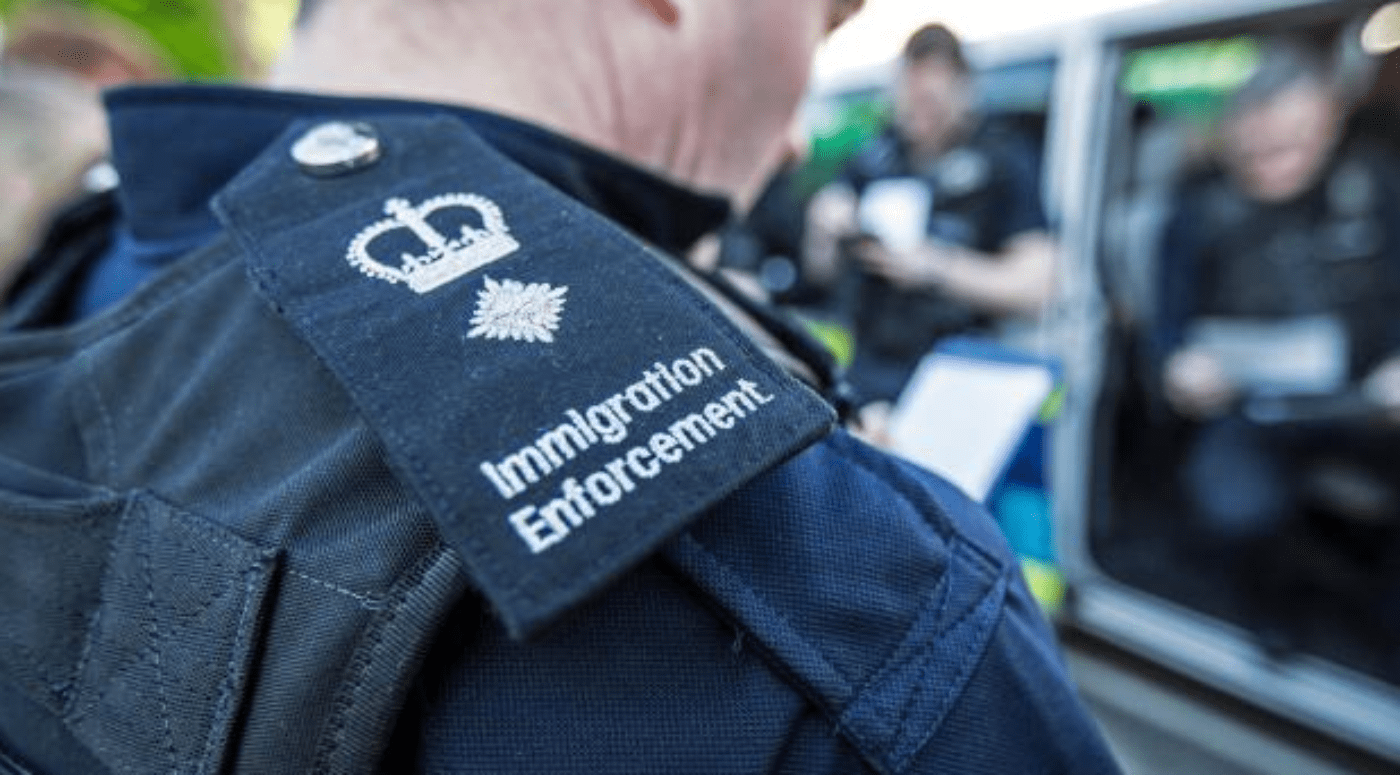

Extradition from the UK is a complex and serious matter, especially for those facing it for the first time. Extradition refers to the process where one country requests the return of a person from another country to face criminal charges or serve a sentence. If you or someone you care about is subject to an extradition request, you must seek legal advice immediately. This article provides an overview of extradition from the UK, including the legal framework, process, potential sentences, and considerations for first-time subjects of extradition orders. Understanding your rights and the legal implications is vital in these circumstances, so information on where to get more help is included at the end.
What is the offence of extradition in the UK?
In the UK, extradition itself is not an offence; rather, it is a legal process. Extradition refers to the action where one jurisdiction delivers a person accused or convicted of committing a crime in another jurisdiction, over to their law enforcement. It is a cooperative law enforcement process between the two jurisdictions and depends on the arrangements made between them.
Under UK law, extradition is governed by the Extradition Act 2003. This Act provides the legal framework for extradition requests both to and from the UK. The process involves various stages, including the issuing of an arrest warrant, initial hearings, and potential appeals.
Extradition can occur in cases where an individual present in the UK is wanted for prosecution, or to serve a sentence for an offence that they have committed in another country. For extradition to be applicable, the offence must be a crime in both jurisdictions and carry a certain level of severity, often involving a potential sentence of at least one year’s imprisonment.
The UK has extradition treaties with numerous countries, facilitating this process. However, the UK will not extradite a person if there are substantial grounds for believing that the extradition would be incompatible with the person’s human rights, as outlined in the European Convention on Human Rights (ECHR).
What are some examples of offences that might lead to extradition in the UK?
In the UK, offences that may lead to extradition generally include serious criminal acts that are recognised as punishable crimes in both the UK and the requesting country. The specific nature of these offences can vary widely, but they typically include:
- Violent Crimes: Such as murder, manslaughter, or serious assault. These are considered grave offences and are likely to be grounds for extradition if the alleged criminal is found in a different country.
- Sexual Offences: Including rape, sexual assault, and child sexual abuse. These are treated with high severity in most jurisdictions.
- Drug Trafficking: The illegal trade of narcotics is a serious crime that often involves international networks, making extradition relevant in many cases.
- Financial Crimes: This includes fraud, embezzlement, money laundering, and tax evasion, especially when large sums of money are involved or the crime has cross-border implications.
- Terrorism: Acts of terrorism are universally recognised as serious crimes, and individuals suspected of such acts are often subject to extradition requests.
- Human Trafficking: This involves illegal trade or forced movement of people for the purpose of exploitation.
- Cybercrime: Including hacking, identity theft, and online fraud, particularly when it affects victims or systems in multiple countries.
- Organised Crime: Participation in criminal organisations and activities like racketeering that may have international connections.
For extradition from the UK, the alleged offence must be a crime in both the UK and the requesting country, and it must carry a potential penalty of at least 12 months imprisonment. However, extradition processes are also subject to various legal and human rights considerations, such as the risk of unfair trial or inhumane treatment in the requesting country, which can prevent extradition even for these serious offences.
What happens if you are subject to extradition in the UK?
The extradition process in the UK starts when a foreign government or international court makes a formal request to the UK authorities. Following this:
- Arrest and Initial Hearing: If the request is valid, the requested person is arrested and brought before a magistrate for an initial hearing. This hearing is to confirm the identity of the individual and inform them about the extradition request.
- Extradition Hearing: A substantive hearing follows, where the court examines the request’s legality, including whether the alleged offence is an extradition offence and if there are any bars to extradition, like potential human rights violations in the requesting state.
- Appeals Process: If extradition is ordered, the individual has the right to appeal to the High Court. Appeals can be based on points of law, facts, or human rights considerations.
- Secretary of State’s Decision: In Part 2 extraditions, the UK’s Secretary of State has the final decision following the court’s ruling.
- Extradition Order Execution: If all appeals fail, and the Secretary of State approves, the extradition order is executed.
Throughout this process, legal representation is absolutely vital. The person facing extradition can challenge the request on various grounds, including human rights concerns, the rule of dual criminality (the act must be a crime in both countries), and potential political motivations behind the request.
How long does the extradition process take in the UK?
The duration of the extradition process in the UK can vary significantly depending on a variety of factors. These include the complexity of the case, the country requesting extradition, any legal challenges or appeals, and the specific circumstances of the individual case.
- The initial stages, which include arrest and preliminary hearings, can be relatively quick, often taking a few weeks to a couple of months.
- The extradition hearings themselves, where the case is presented in court, can take several months. This phase involves examining the evidence, assessing whether the case meets the criteria for extradition under the Extradition Act 2003, and considering any human rights implications.
- If the individual facing extradition decides to appeal the decision, this can extend the process considerably. Appeals can take several months to over a year to resolve, especially if the case goes to higher courts like the High Court or even the Supreme Court.
- Certain factors can prolong the process. For example, if the case involves complex legal issues, if there are significant human rights concerns, or if the person facing extradition raises new legal arguments, these can all add time to the proceedings.
- Following Brexit, the extradition process between the UK and EU countries might be subject to new agreements and procedures, which could impact the time frame.
In general, an extradition case in the UK can take anywhere from a few months to several years, especially if there are extensive legal challenges and appeals. Each case is unique, and timelines can vary widely.
What are the implications of extradition in the UK?
If you are in the UK and facing extradition, it is vital that you understand what this means for you and how you can navigate this challenging situation. Extradition is when a foreign country asks the UK to send you there to face criminal charges or to serve a sentence. It is a complex process, but knowing what to expect can make it less daunting.
Firstly, know that the UK has strict laws (mainly the Extradition Act 2003) to handle extradition. You won’t be sent away immediately. As explained, there is a rather lengthy process that includes an arrest, a court hearing, and chances to appeal. This ensures your rights are respected. Also, the UK has agreements with other countries, which affect how easily they can ask for your extradition. These agreements take into account various factors, including the type of crime and human rights concerns.
Your human rights are a big consideration throughout the extradition process. The UK courts will check if sending you to another country might lead to unfair treatment, like poor prison conditions or an unfair trial. They use the provisions of the Human Rights Act 1998 to make sure your rights are not violated. If there is a serious risk of mistreatment, the extradition might be stopped.
Facing extradition can be very stressful. You might worry about dealing with a different legal system, language barriers, being away from your family, and the uncertainty of it all. During this time, it is very important to take care of your mental health and seek support from family, friends, or professionals.
Where to get further help
Navigating an extradition process requires expert legal guidance due to its complexity and the high stakes involved. This article has outlined the basics of extradition in the UK, but each case is unique and demands a tailored defence strategy. To get more information about what extradition entails, get in touch with the team at Stuart Miller Solicitors for a free, friendly, and non-judgemental conversation about your options.
OUR COMMITMENTS TO YOU:
-
Responsive
A legal expert will consult you within 24 hours of making an enquiry.
-
Empathetic
We will always treat you with trust, understanding and respect.
-
Specialised
Your case will be handled by an expert who specialises in your type of offence.
-
Proactive
We will take early action to end proceedings as soon as it is practically and legally possible to do so.
-
Engaged
You will be kept updated on your case at all times. We will provide a named contact available to answer your questions.
-
Caring
We understand this is a difficult and stressful time for you and your family. Our team will support you every step of the way.
-
Tenacious
We will never give up on your case. We fight tirelessly to get you the best possible outcome.

